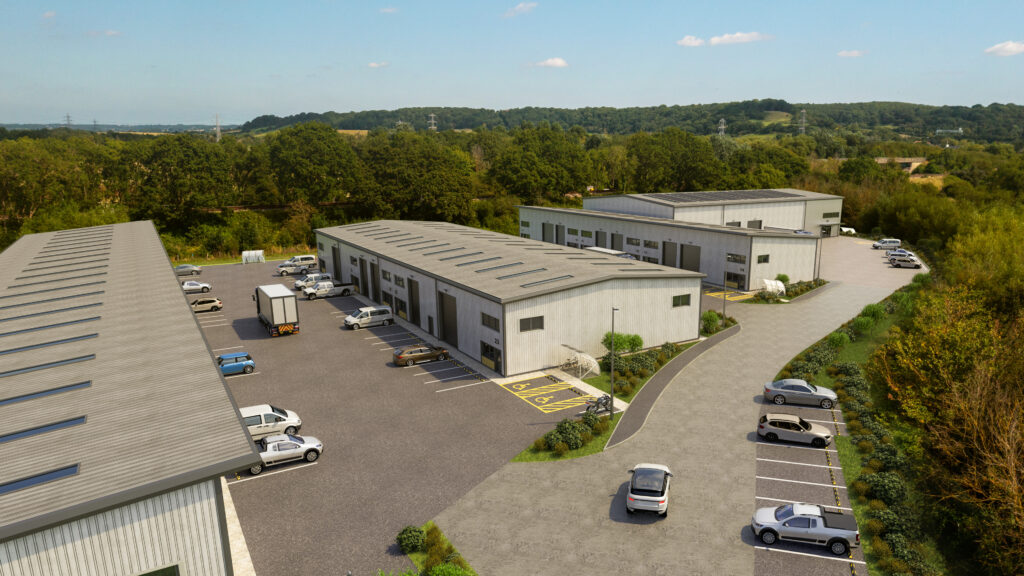4th July 2023
Time to think small with industrial property development

By Emma Smith
Partner | Industrial & Logistics Agency
It’s a frustrating time for South West businesses needing small industrial units. Over the past five years, a lack of development has left a chronic undersupply of suitable space. Is it time to reconsider and build smaller industrial buildings?
Small industrial and distribution units of 1,000 – 4,000 sq ft were once a vibrant part of the market, and the demand hasn’t gone away, just the stock. The market is mostly getting by on the churn of existing older units.
The result is occupiers compromising on the quality of space or opting for less efficient buildings.
Rising build costs have made developers reluctant to build smaller units. It is also more labour-intensive to let and manage or sell numerous properties rather than one or two larger units.
When suitable development sites come to the market, competition is tough, particularly from other uses such as open storage or those seeking lower density occupation.
Added to this, it’s a product that needs to be speculatively built, which adds risk. While there are the occasional off-plan sales, smaller businesses typically want to walk around the space before committing to buying or signing a lease.
But the supply/demand imbalance has pushed up rents and capital values which is making the development of small industrial property a more viable option once again.
For example pre-pandemic rents for small units were typically in the region of £7.50 – £8.00 per sq ft. New schemes now being offered are available at £12.00 – £15.00 per sq ft.
Demand is also particularly strong from owner-occupiers looking to put the property in a pension fund or to give the business a wider asset base. Those renting are looking for short leases to allow for business growth into bigger units.
For this reason, historically, small sheds were built as part of larger developments. It added a variety of offers and helped establish a potential tenant base for the larger units in the future.
The needs of these small businesses vary; some want motorway access, but for others, this isn’t important.
Small industrial units can work well in suburban locations and towns. Yate and Thornbury, Clevedon and Portishead have all traditionally been good locations.
The businesses looking for space vary hugely. At one end of the spectrum, you might have a business which started operating out of the owner’s garage and, at the other, a national firm looking for a base for service teams or last mile delivery points to service local markets.
The use of the space is also varied. It could be used like a traditional warehouse to store products or for equipment when it isn’t in use. It might be small-scale manufacturing, a physio clinic or even doggy day care.
It means the occupier base for this type of space is potentially huge, and where developers have built small units, they have been rewarded.
At Rockhaven Business Centre in Avonmouth, Rockhaven Developments are building units ranging from 1,500 sq ft to 4,000 sq ft as part of a second phase rather than one or two large units because of occupier demand.
In Weston-super-Mare, KMW Trading Ltd will be starting on site in August with its third phase of development consisting of 12 units raging from 860 sq ft – 5,975 sq ft.

